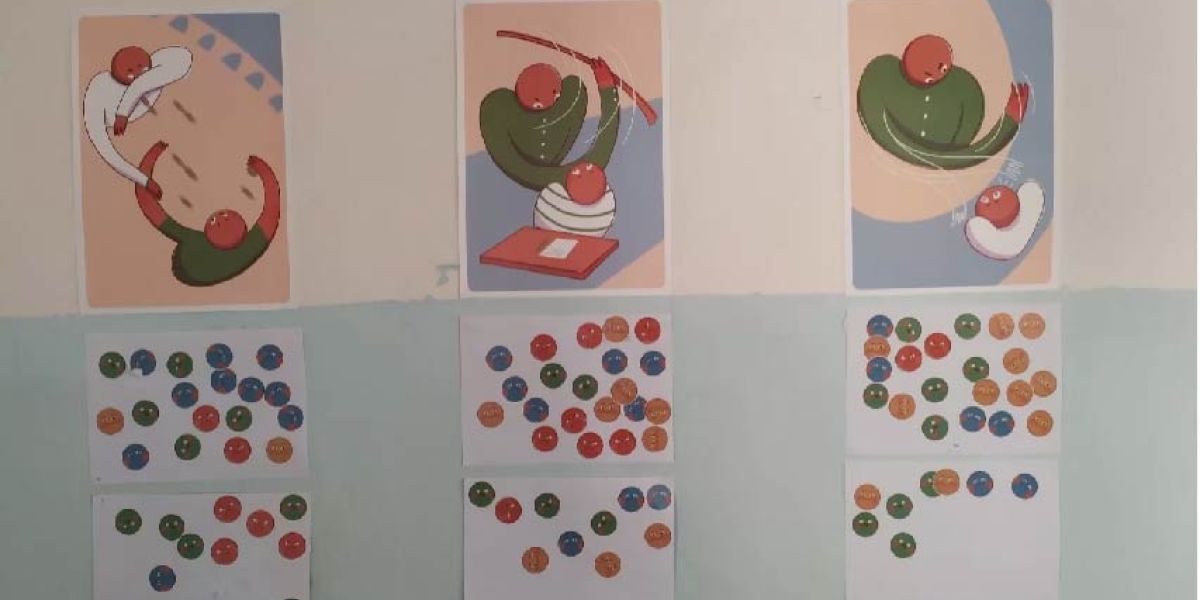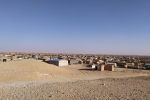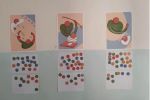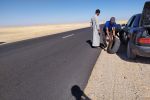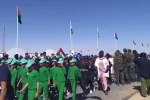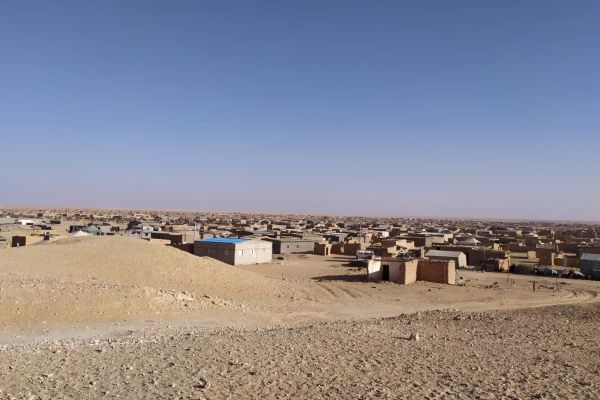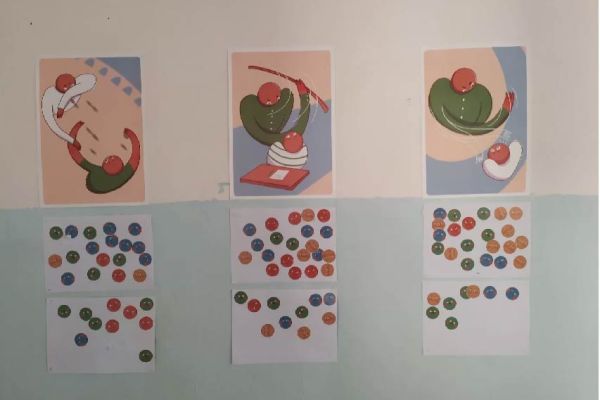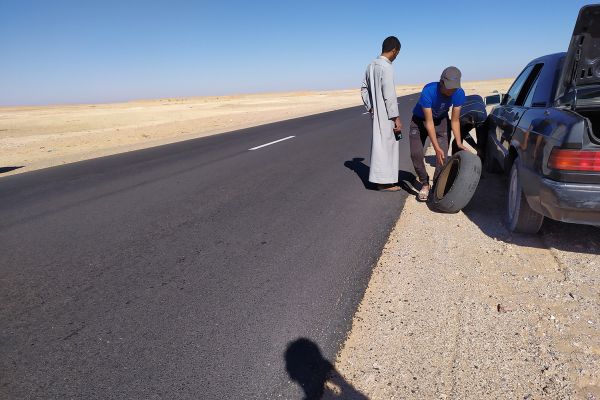Dear all,
As most of you know, in 2019 we started a study on the rights of children who are living in the Sahrawi refugee camps near Tindouf, Algeria. Based on our first interviews with children in the camps, and per their advice, we chose to focus this case study on the child’s right to be protected against violence. In particular, we focused on fighting between children, and ‘educational’ beating by parents and teachers as these are forms of violence against children that occur regularly in the camps.
Based on the research results and the theory of change we developed, we decided that the most effective way to share the research results would be to organise workshops for children and adults. After some delay due to Covid-19, I was finally able to travel back to the camps this January. Below, I explain about the different parts of the workshops and how they were received. Please note that all the workshop materials are made available at the bottom of this blog and can be used free of charge.
Workshop part 1: How does it make you feel?
After a brief introduction, we started the workshop by inviting participants to reflect on how certain situations make them feel. One by one, we presented three different situations:
 |
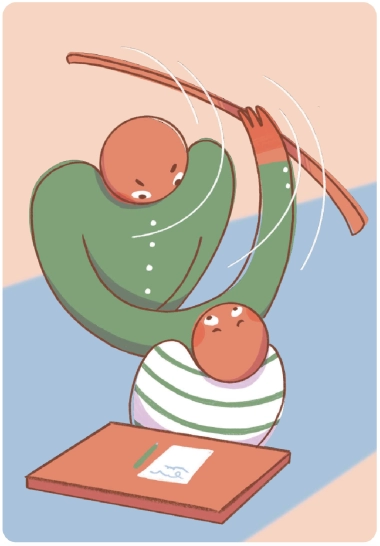 |
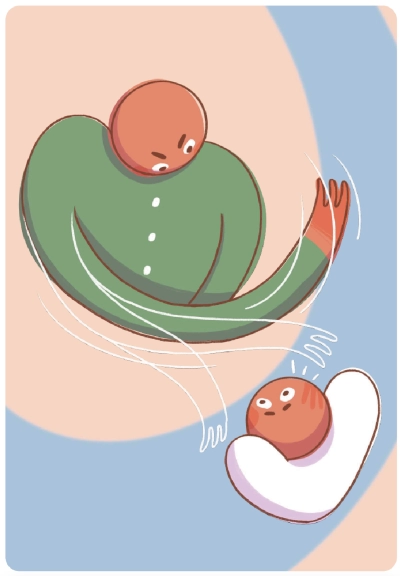 |
| Situation 1: children are fighting | Situation 2: a teacher beats a child with a stick | Situation 3: a parent beats a child |
We also presented four feelings: angry, sad, scared and happy. We asked participants to think about how a situation, for example when children are fighting, makes them feel. Without discussing, they would pick a sticker that represented their feeling, and put this sticker on the white paper underneath the poster with that situation.
Second, participants were invited to share which emotion they chose and why. We started by asking children and then invited adults to react.
Generally, participants agreed that fighting between children was not a good thing but at the same time not everyone thought that it was really a problem – especially the adults. Regarding beating of children by teachers or adults, opinions were different and often lively discussions followed. Some children argued that beating is good or necessary. Others argued that children should not be beaten. Some views that were shared by Sahrawi children:
- “I can’t accept it when a teacher beats a child, because it will only make it worse, and it doesn’t solve anything.”
- “I like it when they beat children, because it is the only way in which they can make children understand.”
- “Beating is the only way how children can respect their parents. They need to beat them.”
- “My parents never beat me. When I see other parents beat their children, I feel scared”
Adults’ perspectives on beating children also varied. They largely seemed to agree that while beating is not desirable or preferred, it is sometimes necessary. However, some argued that it is never necessary, or even when it is “necessary” in the sense that one cannot move a child to behave better, beating is not effective and therefore still not helpful.
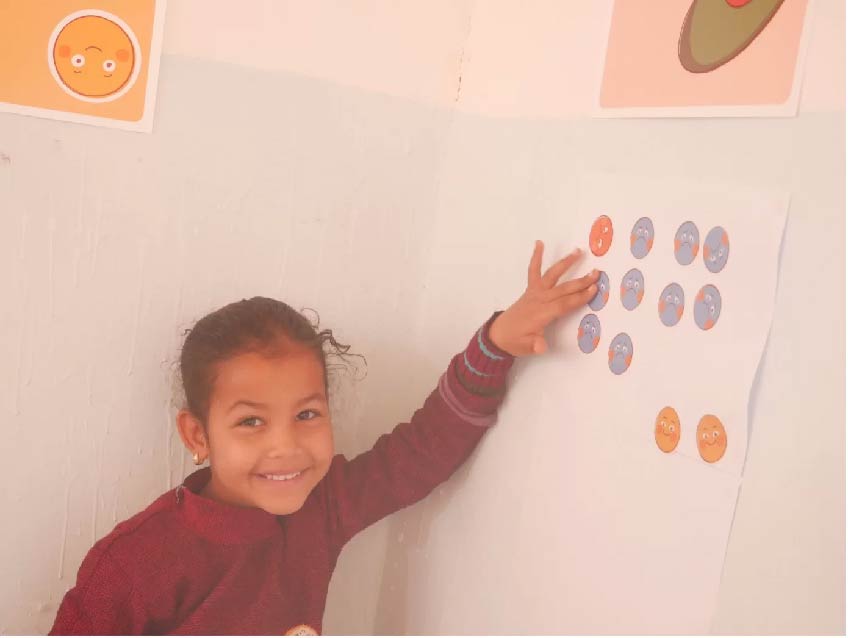
Workshop part 2: Reactions to child behaviour
In the second part of the workshop, we invited participants to reflect on what, they thought, was the best reaction to two situations. The first situation was about a child misbehaving in class. The second was about a child behaving well by helping another child.
Participants were invited to choose between five different reactions and vote (using a sticker) for the reaction (pictured) they liked best:
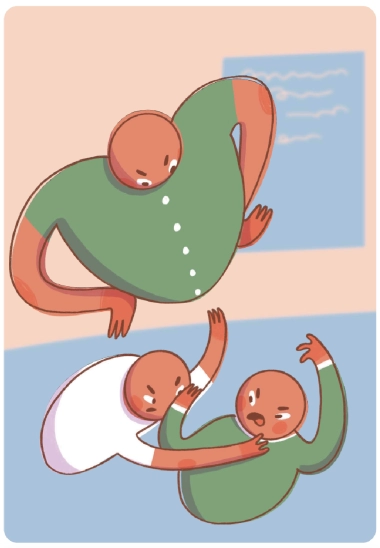 |
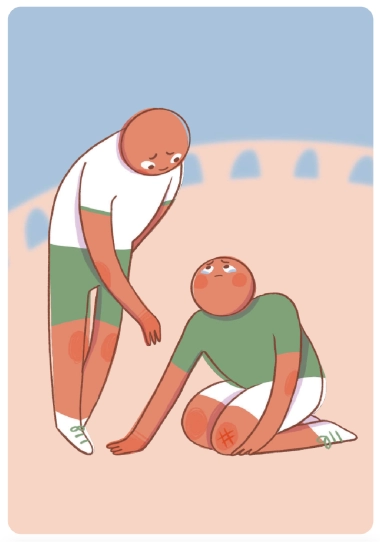 |
| Situation 1: Child misbehaves in class | Situation 2: Child helps another child |
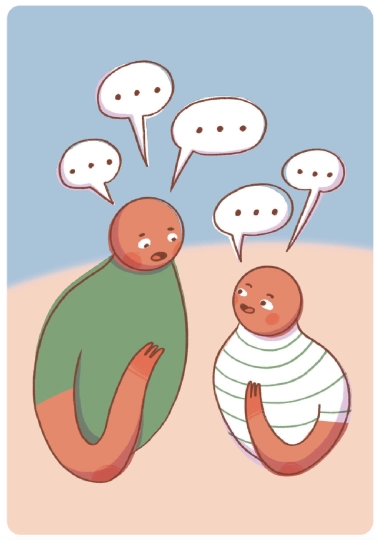 |
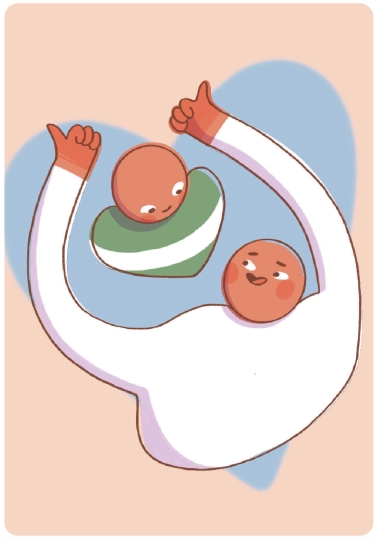 |
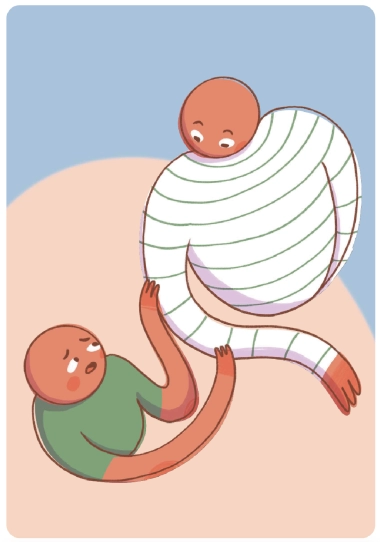 |
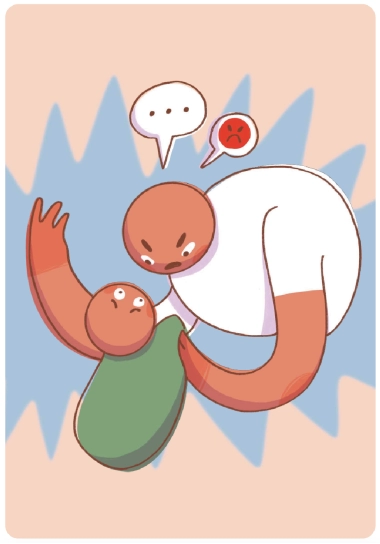 |
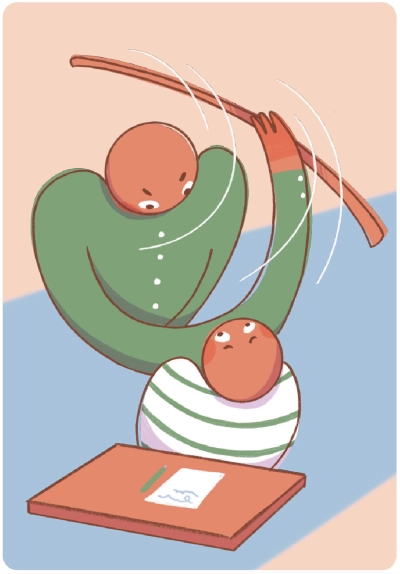 |
| Reaction 1: adult and child talk about it | Reaction 2: adult gives child a compliment | Reaction 3: child asks adult for help | Reaction 4: adult gets angry at child | Reaction 5: adult beats child |
The exercise was a good conversation starter. It gave the incentive and space to the participants to start talking about in what situations it would be good for adults and children to talk, when it would be good for the adult to get angry at the child, when it would be good to give a compliment etc.
Workshop part 3: children’s rights and the power of compliments
Initially, our plan was to mostly invite participants to talk. To have a conversation was to be the main goal of the workshops. However, after a first trial workshop, the Sahrawi teachers indicated that it was necessary to add more content from my side. They suggested that I would give a short lecture where I would share information from a children’s rights perspective including alternative ways of changing children’s behaviour, so that participants could go home having learned something new. I personally struggled with this assignment as I feel very conscious about being a white, Western person who comes to a different society and tries to change some of their tradition/culture (both fighting between children and (lightly) beating children do currently seem part of the Sahrawi culture, although it also seems that beating children is already changing to be less accepted). However, since this was the explicit wish of all Sahrawi involved, I added a part where I spoke for about twenty minutes about the content of the child’s right to protection from violence, the findings of the study, and what we know from research about changing child behaviour.
You can find the whole draft text of this short lecture here, but in short, I made three main points:
- Any physical act that is intended to hurt a child, including light beating for educational reasons, and including fighting between children, is illegal according to international law. It violates the child’s right to protection from violence.
- Fighting between children in the camps is a problem. We know this from what children told us in our study. It should be taken seriously, and three things can be done to prevent this occurring more: 1) taking the problem seriously; 2) combatting boredom by creating child-friendly places and distributing materials; 3) creating rules and subsequent protection mechanisms, together with children and adults.
- If one wants to change children’s behaviour, we know from research that it is much more effective to reward good behaviour, for example by complimenting children, than to punish bad behaviour.
After my talk, three Sahrawi teachers also shared their experiences of using alternative approaches to physical punishment to change their students’ behaviour. This was very powerful, because instead of presenting general theory, they could share what actually worked in their experience with Sahrawi children.
After these presentations, some more discussion would follow. In the end, we invited children to come to the front, when we gave each child a set of memory cards with the images used in the workshop. We ended the workshops by playing memory with the children – which they seemed to really love!
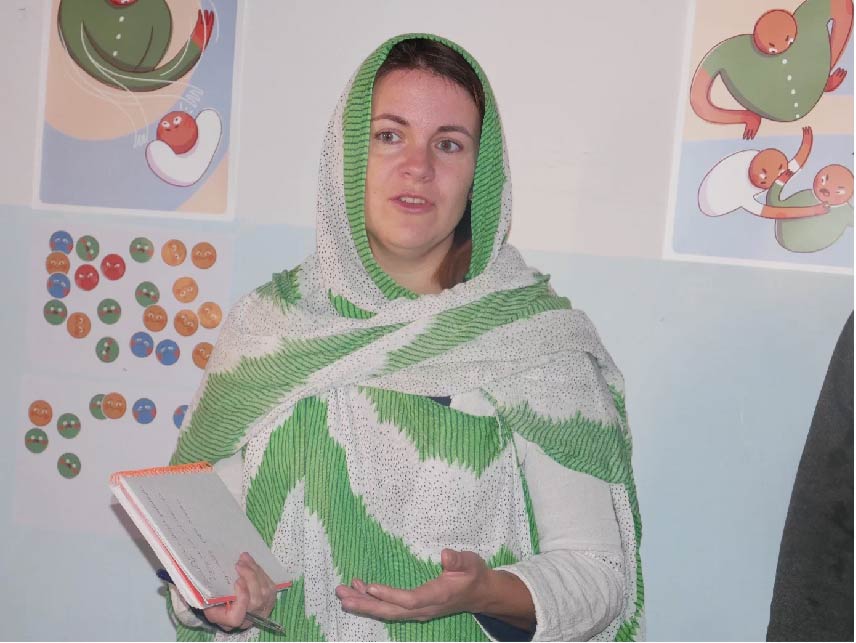 |
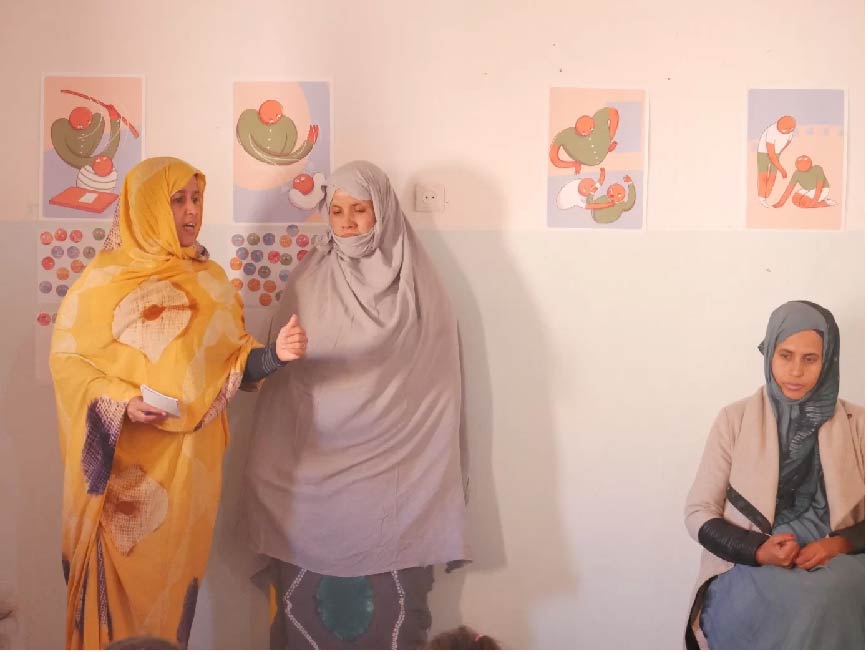 |
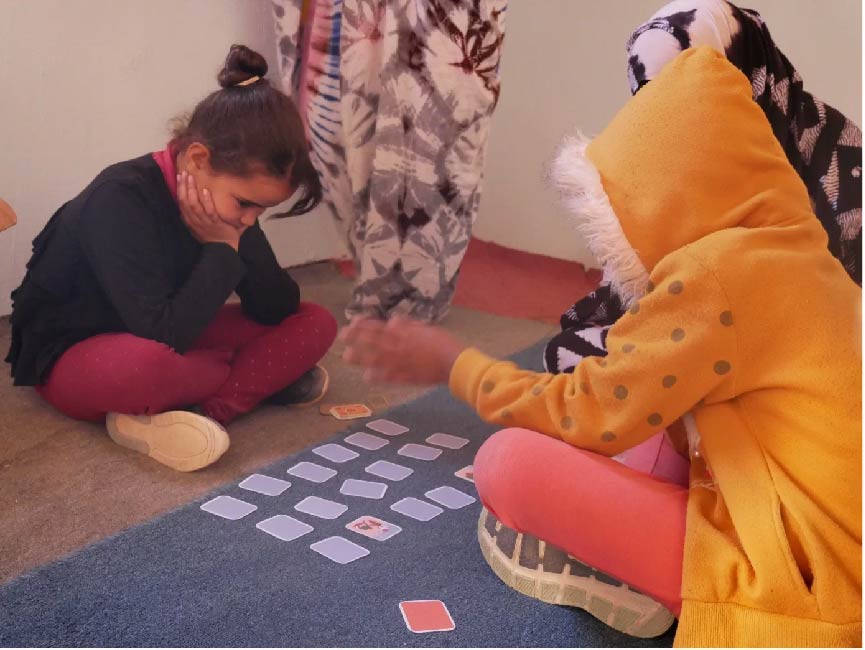 |
| Presenting the findings of the study | Teachers share their experiences | Children playing memory |
Reflection
Generally, I was quite happy with the workshops. One thing that I though was really powerful, was how Sahrawi teachers stepped up and were very quickly teaching the whole workshop in Hassaniye (the Sahrawi language), while I only added the short presentation on the research results. Another thing that I very much liked were the materials. All images were created by illustrator Iris van de Winkel, and the choice of material and printing process was the work of Rik Hurks / Mannen van 80. Fun fact: Iris got involved in the project after I saw some of her work behind the window in the street where my children go to daycare and I contacted her to ask if she’d be interested to create some illustrations for us.
The workshops in my view had several direct and indirect positive learning points:
- There are some forms of violence against children occurring often in the Sahrawi camps. It is, perhaps, possible to change this
- We practiced talking about feelings (with the help of posters and stickers)
- It is good to listen to children’s views and ideas
However, what I am not sure about, is whether these workshops will have much effect. It seems quite limited to do only seven workshops: five in Smara and two in Dakhla. This means that we reached only a very limited amount of people and only in two out of the five camps. Seven workshops are only a small drop in the ocean. That said, we did distribute the memory games, and these are made from PVC material so that they should last a long time, even in the difficult climate in the camps. So, I am hopeful that children will keep playing this game, and that this will keep the conversation going. As one of the teachers said: “The workshops have planted a seed. Now, let’s hope that it will grow.”
Materials
Please find below all materials used in the workshop, available for download and free for use. If you do use the materials, we would appreciate if you mentioned the Children’s Rights Research project and our website (www.childrensrightsresearch.com) as your source. We would also be grateful if you would let us know how you’re using the material by contacting us at
To download the materials, use the links below:
